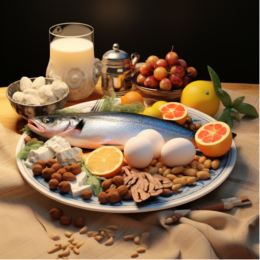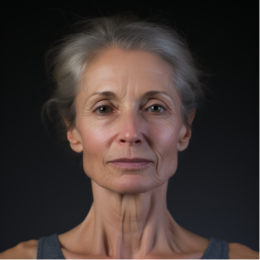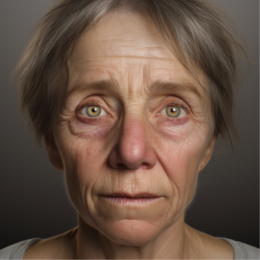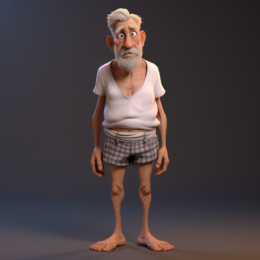Diet for Cancer Patients: A Comprehensive Guide

Cancer, an illness that affects millions of people worldwide, is a complicated battle that entails not just medical treatment but significant lifestyle changes, including adjustments to the patient’s diet. In this article, we will dive deep into the best diet for cancer patients and how food can become an essential ally in this battle.
How Can Diet Help?
Diet plays a pivotal role in an individual’s overall health and well-being, and this remains true for cancer patients. A well-balanced diet can help maintain a patient’s weight, keep the body nourished, improve the immune system, and enhance the ability to cope with treatment side effects.
Statistics:
- According to the World Health Organization (2023), malnutrition affects about 40% of cancer patients, underscoring the importance of a well-balanced diet in the course of their treatment.
- The National Cancer Institute (2023) found that a diet rich in fruits, vegetables, whole grains, and lean proteins can help lower the risk of certain types of cancers.
Does Cancer Treatment Affect Your Diet?
Cancer treatments, such as chemotherapy, radiation, and surgery, can sometimes affect a patient’s ability to eat and absorb nutrients effectively. This can lead to weight loss, nutrient deficiencies, and decreased immunity.
Consequently, the best diet for cancer patients must consider these treatment-induced changes and focus on providing energy, necessary vitamins, and minerals.
What Is the Best Diet For Cancer Patients?
While each person’s nutritional needs can vary depending on their type of cancer, treatment plan, and overall health, certain key dietary components are generally recommended:
1. Maintain a healthy weight
This is essential to support your body during cancer treatment. Achieve this by consuming a balanced mix of proteins, carbohydrates, and fats. Whole grains, lean meats, fish, and legumes can provide the necessary energy without contributing to weight gain.
2. Hydrate
Dehydration can exacerbate treatment side effects like fatigue and dizziness. Patients should aim to drink at least eight glasses of fluid a day, preferably water, fresh juices, and herbal teas.

3. Protein-rich foods
Proteins are the building blocks of the body’s cells and are vital for their repair and growth. They are particularly important for cancer patients, who often need more protein to heal tissues damaged by treatments like chemotherapy or radiation. Include lean meats, dairy products, eggs, nuts, and seeds in your diet.
4. Fruits and vegetables
These are rich in antioxidants and essential nutrients that help protect cells from damage and support a healthy immune system. Aim for at least five servings of various colors each day for a range of different nutrients.
5. Dietary fiber
Foods high in dietary fiber, like whole grains, legumes, fruits, and vegetables, help maintain a healthy digestive system, which is crucial as cancer treatments can sometimes lead to constipation or diarrhea.
6. Healthy fats
Omega-3 fatty acids, found in foods like fatty fish, walnuts, flaxseeds, and chia seeds, have anti-inflammatory properties, which can be beneficial for cancer patients.
7. Vitamins and minerals
These are essential for maintaining health, repairing body tissue, and boosting immunity. Fresh fruits, vegetables, whole grains, and lean proteins are excellent sources. In some cases, doctors may recommend specific supplements to ensure that nutritional needs are met.
8. Phytochemicals
Phytochemicals are compounds found in plants that can have health benefits, such as reducing inflammation and preventing cell damage. Foods rich in phytochemicals include fruits, vegetables, whole grains, nuts, beans, and spices.
What Foods to Avoid If You Have Cancer?
Certain foods may interfere with treatment or promote cancer growth and should be avoided. These include:
- Processed meats and foods high in saturated fats
- Alcohol as it can increase the risk of certain types of cancer
- Foods high in added sugars, which can lead to weight gain
- Certain raw foods, including sushi and raw oysters, could contain bacteria or viruses
Are There Any Cancer-Fighting Foods?
Research shows that certain foods possess cancer-fighting properties, such as:
- Cruciferous vegetables: These include broccoli, cauliflower, and cabbage, which contain compounds that have been shown to slow cancer cell growth.
- Berries: Rich in antioxidants, they help to protect cells from damage.
- Turmeric: Curcumin, the active compound in turmeric, has been found to kill cancer cells in laboratory studies.
Conclusion
Cancer may be a formidable opponent, but a well-planned diet for cancer patients can play a critical role in supporting the body during treatment. Remember, it’s always wise to get personalized advice from a dietitian or nutritionist familiar with your specific needs. In the face of cancer, remember every bite is a step toward healing and recovery.
References
- American Cancer Society. (2023). Cancer Statistics Center.
- World Health Organization. (2023). Nutrition in cancer care.
- National Cancer Institute. (2023). Nutrition in Cancer Care (PDQ®)–Patient Version.





